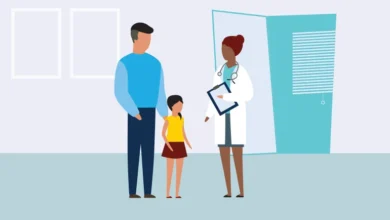What is The Use of Medication To Combat Psychological Issues?

Mental health issues can be difficult to overcome and manage, and they can have a significant impact on quality of life. There is a wide range of approaches that people might take to address their mental health problems. One of the most common—and most controversial—is the use of medication.
It’s natural to have questions about how medication might help you, or if it’s right for you at all. In this article, we’ll explore the use of medication for mental health struggles, from general guidelines to individual considerations. We’ll also look at some alternatives to medication, as well as ways to maximize its effectiveness. By the end, you should have a better understanding of if and when medicating your mental health issues is an option. Let’s dive in. Get Twitch followers from Streamoz to help you achieve increased presence on social media.
Overview of Mental Health Medication
If you’re struggling with mental health issues, medication can be a powerful tool. It can help to reduce symptoms and improve your overall wellbeing.
But first, it’s important to understand the different types of medications available and how they work. Generally speaking, there are two main categories of mental health medications: antipsychotics, which treat psychotic disorders like schizophrenia; and antidepressants, which are used to treat depression and anxiety.
Antipsychotics act on the brain chemicals involved in communication between nerve cells in order to regulate emotions and thought patterns. Antidepressants also affect these chemicals but work differently based on the type of antidepressant prescribed. For example, selective serotonin reuptake inhibitors (SSRIs) may increase levels of serotonin in the brain by blocking its reabsorption into nerve cells; while tricyclic antidepressants may help improve mood by boosting levels of norepinephrine and serotonin.
It’s important to note that medication alone is not a guarantee for good mental health—it must be used alongside therapy and lifestyle changes for optimal results. However, when used properly, it can be an effective way to manage psychological issues.
Benefits of Mental Health Medication
When it comes to treating psychological issues, medication can be a powerful tool in your mental health toolkit. In addition to therapy and lifestyle changes, medications like antidepressants, antipsychotics, and mood stabilizers can help manage symptoms such as depression, anxiety, bipolar disorder, and schizophrenia.
For many people living with mental health disorders, medication can help reduce or even eliminate the symptoms of their condition. Here are just some of the benefits of taking medication for mental health:
- Improved moods: Many antidepressant medications work by increasing the amount of serotonin in the brain. Serotonin is an important neurotransmitter that helps regulate our moods. By increasing serotonin levels, these medications help alleviate depression and improve our overall moods.
- Reduced stress: Taking certain antidepressants has been found to reduce levels of the stress hormone cortisol in the brain. This can help reduce feelings of anxiety and stress that come with psychological disorders like depression and PTSD.
- Improved concentration: Certain types of antipsychotics can help improve concentration by regulating dopamine levels in the brain. Higher dopamine levels are associated with better cognitive functioning and improved attention levels.
Mental health medications come with numerous benefits but it’s important to remember that they don’t work overnight and should be taken as prescribed by your doctor. With a combination of therapy, lifestyle changes, and medication if recommended by a doctor, you can have better control over your mental health struggles.
Risks and Side Effects Associated With Mental Health Medication
When it comes to taking medications for mental health, there are definitely some risks and side effects you should be aware of. While medications can be an effective way to treat psychological issues, it’s important to weigh the possible pros and cons before coming to a decision.
Risks
The most common risks associated with mental health medication include weight gain, dizziness, restlessness and insomnia. It can also lead to more serious risks such as liver damage, stroke and suicidal thoughts. Some medicines can interact with other medications so it’s important to speak with your doctor about potential side effects before starting any type of medication.
Side Effects
In addition to the aforementioned risks, there are a few possible side effects you should consider before taking a medication for mental health issues. These include drowsiness, fatigue, nausea and headaches. Depending on the type of drug you take, these side effects can last anywhere from a few days up to a few weeks or months. You may also experience increased anxiety or mood swings when taking certain medications. It’s important to keep track of these side effects and report any concerning changes to your doctor right away.
Taking medication for psychological issues can be beneficial in treating many different types of mental health disorders but it’s important to understand the risks and side effects associated with these types of drugs before making any decisions about treatment options. Knowing all the facts is essential in order to make an informed decision that is best for your mental health needs.
Factors to Consider Before Taking Mental Health Medication
When it comes to considering medication as part of your mental health recovery, there are several important factors to take into account. First, you’ll want to consider the types of medications that are available and determine if any of them might be suitable for your situation.
Benefits
It’s also important to weigh the pros and cons of taking medication for mental health issues. On the plus side, depression medications can reduce symptoms such as fatigue, irritability, hopelessness, and thoughts of suicide, which can help improve quality of life. Additionally, medications can also reduce symptoms like hallucinations or delusions in people with schizophrenia or other psychotic disorders.
Side Effects
However, it’s essential to understand that taking medication for mental health issues can have side effects such as weight gain, dry mouth, and sleep problems. It is important to discuss these side effects with your doctor before starting a new medication.
Finally, you’ll need to think about whether or not the benefits outweigh any potential risks. For example, if a medication causes undesired side effects but also improves your quality of life overall then it may be worth considering taking it. Taking all these considerations into account when trying to decide whether or not medication is right for you is essential to making an informed decision about your mental health care.
Conclusion
In conclusion, medication may be an effective option to help manage psychological issues, but it is important to remember that it should not be used as the sole approach. Instead, medication should be used in combination with other treatments such as therapy, lifestyle modifications and social support, in order to ensure the most positive and successful outcome for those suffering from psychological issues.
Moreover, it is important to educate oneself about the potential side effects of the medication, and to be aware of the potential risks and benefits. Ultimately, speaking with a qualified mental health professional, who has expertise in prescribing the appropriate medications to treat psychological conditions, is the best way to determine the most appropriate approach.




